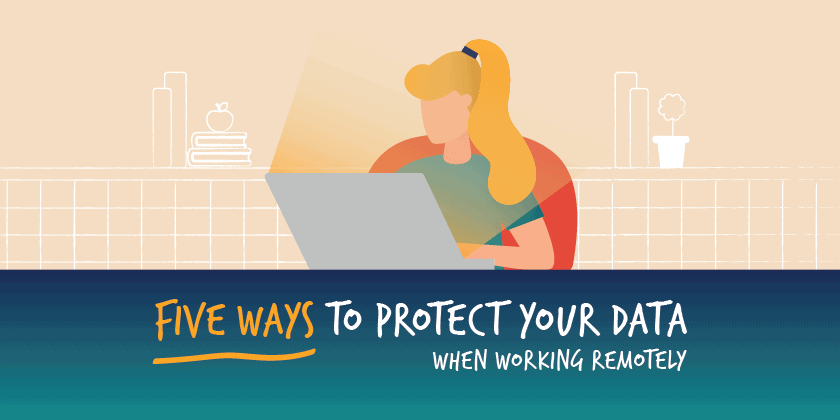One of the big trends in recent years has been the rapid increase in the number of employees working remotely.
A recent study suggests that up to 70% of people globally work remotely at least once a week and this figure is only expected to rise as more businesses look at ways of increasing staff productivity.
Advances in technology have meant that employees have the flexibility to work from virtually anywhere. Whether at meetings, attending a conference, in airports, or on public transport, employees can use their mobile devices to log into their work accounts outside the secure perimeters of the office.
Despite the ease and flexibility this provides, remote working presents a serious security risk that can leave your business IT network, systems and devices highly vulnerable to attack. The information held on mobile devices is extremely valuable to cybercriminals and they will be quick to take advantage of any lapses in security to steal this sensitive data.
The resulting loss of sensitive company data can be devastating for a business. The fallout out from a data breach can include a drop in share price, loss of customers, financial penalties, damage to reputation, and it’s estimated that 60 percent of small and mid-size organisations will go out of business after a cyber-attack.
To ensure the security of sensitive company data, it’s vital that employees are able to recognise the threats and vulnerabilities to their company’s information assets when working remotely.
How to protect your data when working remotely
To prevent the compromise of valuable company data, there are a number of security practices that employees should adopt when working remotely. These include:
1. Keep Laptops and Mobile Devices Secure

Mobile devices are highly vulnerable to being lost or stolen, providing criminals with easy access to sensitive company information. It may seem obvious, but one of the most important ways to protect mobile devices is to ensure they remain with you, and in sight at all times.
If you’re working in a public space, never leave your device unattended and be aware of shoulder surfers, someone who may be looking over your shoulder at confidential information that’s displayed on your screen.
2. Avoid use of Public Wi-Fi

As tempting as it may be to use free public Wi-Fi, it presents a huge risk to the security of company data. Public Wi-Fi requires no authentication to establish a network connection, allowing criminals to intercept any data on the same unencrypted open network.
This can result in the theft of login passwords, credit card information and other personal and financial details. Unsecured Wi-Fi networks can also be used to spread malware, allowing hackers unrestricted access to everything on your device.
3. Use a VPN (Virtual Private Network)

VPN services are ideal for securely accessing your work computer systems while working away from the office. A VPN is a network that allows you to communicate over an unsecured, unencrypted network in a private way. A VPN encrypts your data so that a hacker cannot tell what you are doing online or where you are.
4. Create Strong Passwords

You’ve probably heard it time and time again but creating a unique password really is one of the easiest ways you can protect yourself from being hacked. A strong password should be between 8-15 characters long, a mix of uppercase and lowercase letters and include numbers or symbols.
A good way to remember your password is to create a sentence or phrase that is unique to you. The first letter of each word will form the basis of your password and letters can be substituted with numbers and symbols to add a further line of defence.
5. Security Awareness Training

Effective security awareness training is essential in training your employees to identify and respond appropriately to the growing range of cyber security threats. Unfortunately, human error accounts for more than 90 percent of security breaches so it’s vital that staff understand the importance of their role in safeguarding sensitive company data when working remotely.
MetaCompliance specialises in creating the best eLearning content available on the market. We’ve taken the most up to date research on eLearning methods and combined this with creativity, expert knowledge and innovative software to deliver effective and engaging content that helps businesses stay cyber secure and compliant. Contact us for further information on our extensive range of cybersecurity and eLearning courses.







